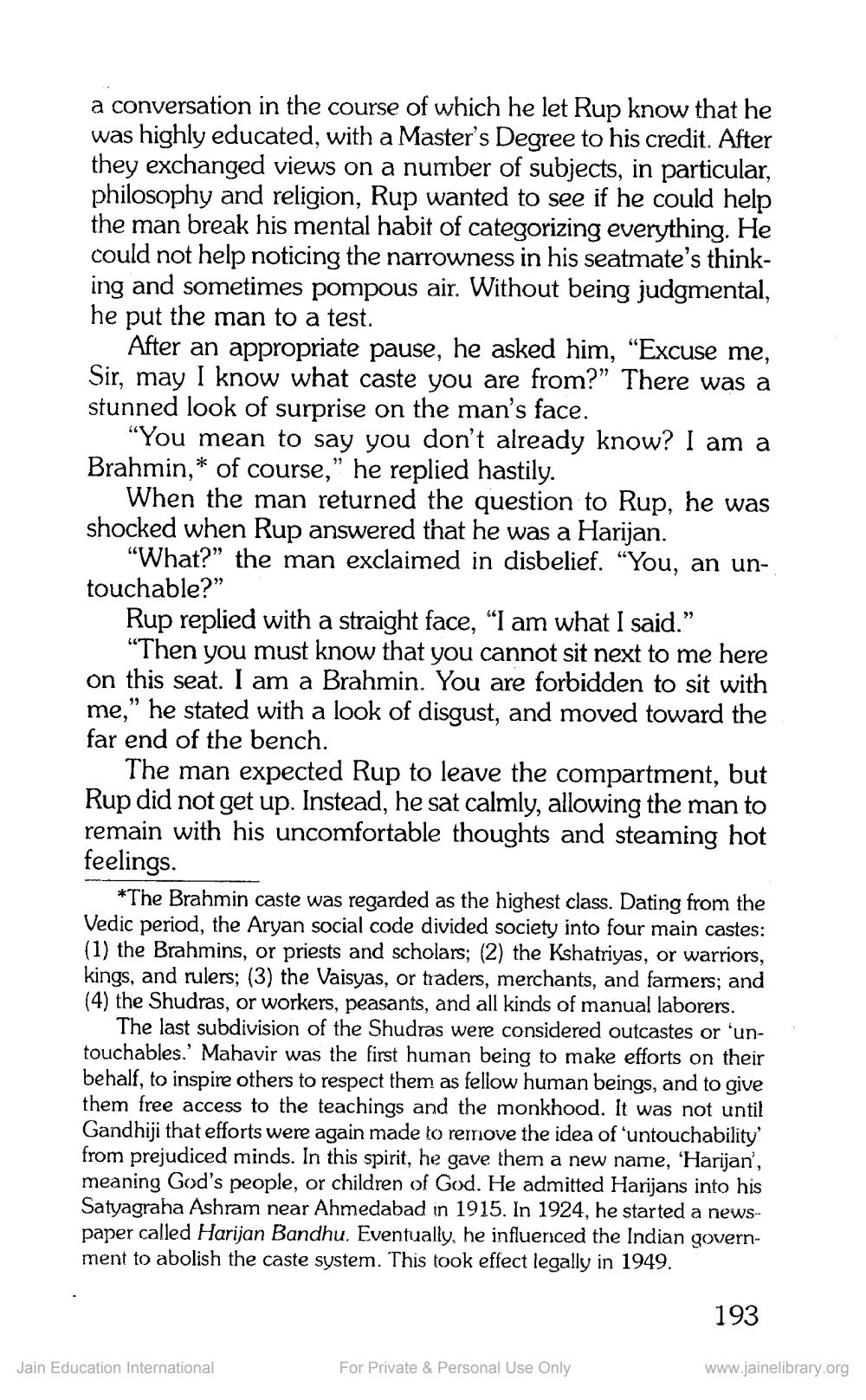________________
a conversation in the course of which he let Rup know that he was highly educated, with a Master's Degree to his credit. After they exchanged views on a number of subjects, in particular, philosophy and religion, Rup wanted to see if he could help the man break his mental habit of categorizing everything. He could not help noticing the narrowness in his seatmate's thinking and sometimes pompous air. Without being judgmental, he put the man to a test.
After an appropriate pause, he asked him, “Excuse me, Sir, may I know what caste you are from?” There was a stunned look of surprise on the man's face.
“You mean to say you don't already know? I am a Brahmin,* of course,” he replied hastily.
When the man returned the question to Rup, he was shocked when Rup answered that he was a Harijan.
"What?" the man exclaimed in disbelief. “You, an untouchable?”
Rup replied with a straight face, “I am what I said.”
“Then you must know that you cannot sit next to me here on this seat. I am a Brahmin. You are forbidden to sit with me,” he stated with a look of disgust, and moved toward the far end of the bench.
The man expected Rup to leave the compartment, but Rup did not get up. Instead, he sat calmly, allowing the man to remain with his uncomfortable thoughts and steaming hot feelings
*The Brahmin caste was regarded as the highest class. Dating from the Vedic period, the Aryan social code divided society into four main castes: (1) the Brahmins, or priests and scholars; (2) the Kshatriyas, or warriors, kings, and rulers; (3) the Vaisyas, or traders, merchants, and farmers; and (4) the Shudras, or workers, peasants, and all kinds of manual laborers.
The last subdivision of the Shudras were considered outcastes or 'untouchables.' Mahavir was the first human being to make efforts on their behalf, to inspire others to respect them as fellow human beings, and to give them free access to the teachings and the monkhood. It was not until Gandhiji that efforts were again made to remove the idea of 'untouchability' from prejudiced minds. In this spirit, he gave them a new name, 'Harijan', meaning God's people, or children of God. He admitted Harijans into his Satyagraha Ashram near Ahmedabad in 1915. In 1924, he started a newspaper called Harijan Bandhu. Eventually, he influenced the Indian government to abolish the caste system. This took effect legally in 1949.
193
Jain Education International
For Private & Personal Use Only
www.jainelibrary.org




